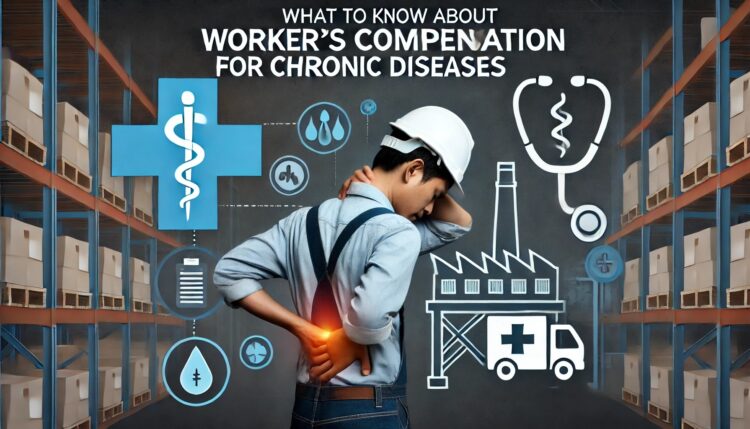Workers’ compensation is vital for employee and workplace safety. The cover is designed to provide medical and financial support to employees suffering injuries and illnesses. While most people associate it with common medical conditions and injuries, the benefits extend to chronic issues. Long-term issues arising from prolonged exposure to stress and hazards significantly affect an employee’s ability to work.
Chronic issues often develop over the years, making it challenging to identify their cause. However, affected employees can seek compensation if these conditions can directly be linked to work-related activities. Below are two things to know when seeking compensation for these conditions.
Which Conditions Qualify for Compensation?
Generally, these health issues develop gradually following extended exposure to workplace conditions. Unlike acute issues, these conditions have a slow onset. They significantly affect employee’s health, necessitating extended medical care and support.
Common chronic work-related conditions include:
- Occupational asthma – occurs after prolonged exposure to gases and dust. Employees of the manufacturing and construction industries are at a higher risk.
- Hearing loss – employees of construction sites and factories with loud noise are mostly affected. Unfortunately, this is an irreversible condition that affects employee quality of life.
- Chronic back pain – job descriptions that involve heavy lifting can also cause chronic back pain. This is most prevalent among warehouse employees and nurses.
- Skin issues – prolonged contact with irritants can cause skin conditions. Employees providing cleaning and cosmetology services are at a higher risk.
- Carpal tunnel condition – common among employees who perform repetitive hand tasks like typing. Using vibrating tools also causes this condition.
- Mesothelioma – caused by extended exposure to asbestos fibers.
Identifying chronic conditions helps affected employees file the right compensation claims. Affected employees should consult an experienced Mesothelioma law firm to handle their compensation claims.
Eligibility for Worker’s Compensation for Chronic Conditions
Employees should meet specific criteria to be eligible for compensation. However, due to the gradual onset of these diseases, proving eligibility is always a challenge compared to acute injuries. Employees should first establish work-related connections. Work history and medical evidence are crucial for associating the disease with workplace conditions.
Medical documentation should establish a direct causal link between the disease and workplace conditions. Healthcare providers should explain how specific exposures at work could lead to the development or worsening of the disease. This should be supported by a detailed job description outlining the employee’s job duties. Records of the hours worked in harmful conditions should be included to support the claim.
Affected employees should report the chronic condition to their employers immediately after diagnosis. Most states have time limits for reporting the illness to be eligible for compensation. With these established, employees should engage experienced attorneys to file a compensation claim.
Endnote
Worker’s compensation is designed to support employees’ medical needs and help them adapt to long-term changes in their health. The compensation provides medical benefits, lost wages, and covers for necessary vocational rehabilitation. Other additional benefits include the cost of home modifications and death benefits if the employee unfortunately succumbs to the condition.










